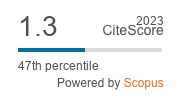The European Union Innovation Performance in View of the Lisbon Strategy
DOI:
https://doi.org/10.2478/v10103-009-0031-6Abstract
The Lisbon Strategy was accepted by the European Council in March 2000 during the Lisbon summit. The Strategy is European Union’s answer to many challenges resulting from the economic globalization and the dynamic development of information technologies. The importance of these challenges is paramount. Hence, it has turned out that new strategies based on the principle of balanced development which would modernize the European economy are indispensable. Even though in the last decade of the 20th century integration process of Union’s economies underwent considerable intensification, they still could not outweigh the American economy in the technological race. As a result European economies became less competitive in comparison with the American counterpart. The rise in innovativeness of the EU economies plays a key role in the implementation of the major aims of the Lisbon Strategy. The ability to facilitate those innovations and to put them into practice have crucial importance for minimizing the economic distance between EU and US. The main aim of the paper is to present the innovativeness of European economies and Japan. The paper also evaluates the conditions and effects of the implementation of the strategic objectives of Lisbon Strategy. The paper is divided into four parts. First deals with the characteristics of the role of knowledge-based economy and innovativeness of the economic system in Lisbon Strategy. Second is devoted to the issue of innovativeness of the EU economies as compared to the US and Japan. Third presents evaluation of the Lisbon Strategy implementation. Fourth analyses the renewed Lisbon Strategy
Downloads
References
Bielska A., Kwasowski M., Serafin P. (2003), Analiza propozycji reform w raporcie ‘An Agenda for a Growing Europe’ - ocena z perspektywy Strategii Lizbońskiej i rozszerzenia UE www.biuletyn.ukie.gov.pl
Google Scholar
Castells M. (2003), Galaktyka internetu, Rebis, Poznań
Google Scholar
Ciechański J. (2003), Otwarta metoda koordynacji w Unii Europejskiej, Instytut Stosunków Międzynarodowych Uniwersytetu Warszawskiego, Warsaw
Google Scholar
Communication to The Spring European Council ‘Working Together for Growth and Jobs. A New Start for the Lisbon Strategy’ (2005), Brussels, February
Google Scholar
European Innovation Scoreboard 2007 (2008), Commission of European Communities, Brussels
Google Scholar
Gadomski W. (2003), Między Wschodem a Zachodem, ‘Gazeta Wyborcza’, 15 December
Google Scholar
Giddens A. (2009), Europa w epoce globalnej, PWN, Warsaw
Google Scholar
Haliżak E., Kuźniar R., Symonides J. (2004), Globalizacja a stosunki międzynarodowe, Oficyna Wydawnicza Branta, Bydgoszcz - Warsaw
Google Scholar
Leonard D. (2003), Przewodnik po Unii Europejskiej, Studio EMKA, Warsaw
Google Scholar
Marliński W. (2000), Inicjatywa "e Europa" jako narzędzie przyspieszenia transformacji w kierunku społeczeństwa informacyjnego, ‘Wspólnoty Europejskie’, No. 4
Google Scholar
Otachel B. (2003), Rezultaty spotkania Rady Europejskiej w Brukseli w dniach 20-21 marca 2003 - ocena dotychczasowej realizacji Strategii Lizbońskiej www.biuletyn.ukie.gov.pl
Google Scholar
Płowiec U. (2001), Wyzwania dla Polski wynikające z przewidywanego rozwoju Unii Europejskiej, Kongres Ekonomistów Polskich, Warsaw, January, zeszyt 3
Google Scholar
Polska wobec redefinicji Strategii Lizbońskiej, Zielona Księga PFSL (2005), Warsaw-Gdańsk
Google Scholar
Presidency Conclusions: Lisbon European Council (2000), 23-24 March, Article 26
Google Scholar
Putting knowledge into practice. A broad - based innovation strategy for the EU (2006), Brussels
Google Scholar
Radło M. J. (2003), Wyzwanie konkurencyjności. Strategia Lizbońska w poszerzonej Unii Europejskiej, Instytut Spraw Publicznych, Warsaw
Google Scholar
Downloads
Published
How to Cite
Issue
Section
License

This work is licensed under a Creative Commons Attribution-NonCommercial-NoDerivatives 4.0 International License.










